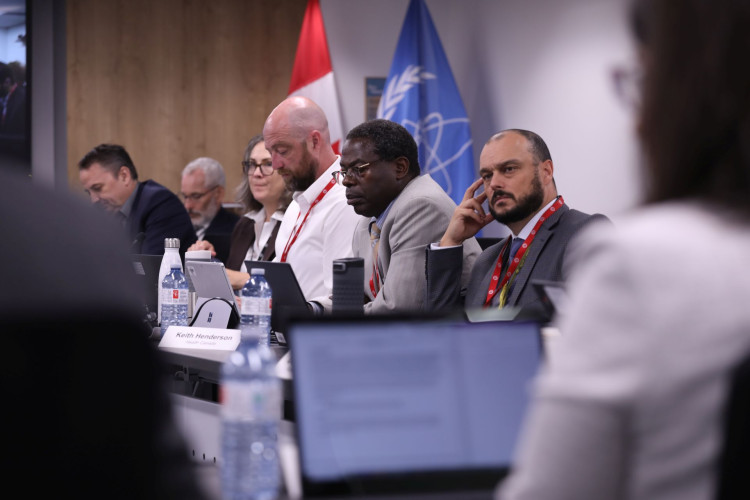 An International Atomic Energy Agency (IAEA) Emergency Preparedness Review (EPREV team has concluded a five-day follow-up mission to review the emergency preparedness and response (EPR) framework for nuclear and radiological emergencies in Canada. The mission aimed to assess the progress made by Canada in implementing the recommendations provided during the initial EPREV mission conducted in 2019.
An International Atomic Energy Agency (IAEA) Emergency Preparedness Review (EPREV team has concluded a five-day follow-up mission to review the emergency preparedness and response (EPR) framework for nuclear and radiological emergencies in Canada. The mission aimed to assess the progress made by Canada in implementing the recommendations provided during the initial EPREV mission conducted in 2019.
The review was requested by the Canadian government and hosted by Health Canada and the Canadian Nuclear Safety Commission (CNSC). The team comprised five experts from Australia, France, Romania, the UK and the USA, as well as one IAEA staff member. Discussions were held with officials from Health Canada, CNSC, Public Safety Canada, Natural Resources Canada, Ontario, New Brunswick, Bruce Power and Ontario Power Generation.
The team conducted a comprehensive review of Canada's EPR capabilities related to nuclear incidents against the IAEA safety standards. This covered various aspects including the regulatory framework, EPR arrangements, training and exercises, and radioactive waste management in an emergency.
The IAEA team acknowledged the significant efforts made by the Canadian authorities to enhance their nuclear EPR since the initial EPREV mission, who had shown a strong commitment to implementing earlier recommendations for strengthening the EPR framework.
“Canada is implementing the IAEA’s Safety Standards in a commendable fashion. By hosting the EPREV follow-up mission, Canada has taken a leadership role among nations with mature and complete nuclear power programmes, showing its commitment to continuous improvement,” said Carlos Torres Vidal, the Director of the IAEA’s Incident & Emergency Centre.
The EPREV team identified several strengths including:
- Canada is developing a software tool to enable the most effective and efficient use of available radiation monitoring resources in response to a nuclear or radiological emergency.
- Canada decided to further align with the reference levels, generic criteria and operational intervention levels provided in the IAEA Safety Standards.
The team also encouraged the Canadian authorities to continue efforts to further strengthen EPR through:
- Improving Health Canada’s Monitoring Strategy Tool by motivating more stakeholders to complete the tools’ questionnaires.
- All organisations reinforcing the distinction between the termination of their emergency response and the overall termination of the emergency.
“Canada developed an action plan to address the EPREV findings of 2019, including the creation of a federal-provincial-territorial working group to coordinate a national strategy on environmental radiation monitoring in an emergency and formalizing a working group on waste management,” said Peter Elder, CNSC Vice-President & Chief Science Officer. “We are keen on continuing our collaboration with our domestic and international colleagues, and on upholding safety and security as paramount priorities.”
Image: (L-R) Pascale Bourassa (CNSC), Tristan Barr (HC), Dominique Nsengiyumva (HC) and Keith Henderson (HC) during the IAEA Emergency Preparedness Review follow up mission in Ottawa, Canada (courtesy of CNSC/Gabrielle Dubois)



